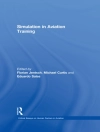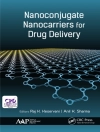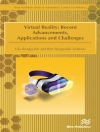Supercapacitors can both hold large amounts of energy and charge up almost instantly. They have higher energy densities, higher efficiencies and longer lifetimes so can be used in a wide range of energy harvesting and storage systems including portable power and grid applications.
Despite offering key performance advantages, many device components pose significant environmental hazards, often containing fluorine, sulfur and cyanide groups which are harmful when discarded. In recent years, there has been increasing research into more sustainable electrode materials for supercapacitor applications.
In this book, readers are introduced to the extensive and ongoing research on the rationalization of low-carbon supercapacitor materials, their structures at varying scales and dimensions, the development of effective and low-cost synthesis techniques, design and architecture of green materials, as well as clarification of their electrochemical performance.
It is an ideal book for researchers and industry professionals at the energy–environment nexus, searching for new advancements in supercapacitor science and technologies.
قائمة المحتويات
Introduction to Green Supercapacitors: Fundamentals, Design, Challenges and Future Prospects;Introduction to Low-carbon Supercapacitors: New Prospects;Synthesis Techniques for Green Supercapacitors: A Review;Fabrication Techniques of Green Supercapacitors: Advances and Limitations;New Materials for Low-carbon Supercapacitors: Latest Developments and Perspectives;Biopolymer-based Green Supercapacitors: A Critical Review;Nanocomposite-based Green Supercapacitors: Advantages and Limitations;Advances in Low-carbon Supercapacitors Based on Nanocomposites: Advantages and Limitations;Bioactive and Biodegradable Supercapacitors: Recent Advances, Challenges, and Future Perspectives;Biomass-derived Highly Porous Carbon for High-rate Supercapacitors: Advances and Limitations;Nature-inspired Green Supercapacitors: Advantages and Limitations;Green Supercapacitors in Portable and Wearable Electronics;Applications of Green Supercapacitors in Transportation Systems;A Holistic Treatise on Artificial Intelligence (AI) and Machine Learning (ML) Tools for Green Supercapacitors;Emerging Applications of Green Supercapacitors: A Critical Review;New Developments in Low-carbon Supercapacitors for Emerging Applications: A Critical Review;Sustainability of Green Nanocomposites-based Supercapacitors: Advances and Limitations;Commercial Aspects, Safety Regulations, Environmental and Health Impacts, Recycling Strategies of Supercapacitors
عن المؤلف
Chaudhery Mustansar Hussain, Ph D, is an adjunct professor and director of laboratories in the Department of Chemistry and Environmental Sciences at the New Jersey Institute of Technology (NJIT), Newark, New Jersey, United States. His research is focused on the applications of nanotechnology and advanced materials, environmental management, analytical chemistry, and other various industries. Dr. Hussain is the author of numerous papers in peer-reviewed journals as well as a prolific author and editor of many books, including scientific monographs and handbooks in his research areas.












